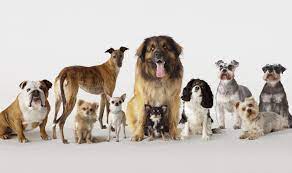Looking at Dogs Behavior from Different Perspectives.
Does your dog ignore your commands? Is he a troublemaker? Is he, in fact, the very antithesis of a good boy?
Perhaps your dog can think for themselves and can make decisions independently.
That is what scientists from the University of Helsinki, Finland are studying. Evaluating over 1,000 dogs from 13 different breeds, researchers have found several breed differences in traits  such as social cognition, problem-solving ability, and inhibitory control. Previous research has shown that breed is one factor potentially affecting a dog’s personality and behaviour. However, we still know very little about the breed differences of cognitive traits, such as problem-solving ability, memory, logical reasoning, and social cognition. The aim of this study was to explore which cognitive traits may differ by breed and how each breed performs compared with others for each of the studied traits.
such as social cognition, problem-solving ability, and inhibitory control. Previous research has shown that breed is one factor potentially affecting a dog’s personality and behaviour. However, we still know very little about the breed differences of cognitive traits, such as problem-solving ability, memory, logical reasoning, and social cognition. The aim of this study was to explore which cognitive traits may differ by breed and how each breed performs compared with others for each of the studied traits.
The dogs participated in seven cognitive tests and three tests measuring behavior. Significant differences were found between breeds in the tests measuring inhibitory control, understanding of human gestures (such as pointing with a finger in a specific direction), spatial problem-solving ability (detouring around a V-shaped fence), activity level, greeting an unknown person, exploration in a novel environment, and behavior during a problem-solving situation that is impossible to solve (i.e., whether the dog tries to solve the problem independently or asks the human for help instead).
How do breeds differ?
“The results provide interesting information concerning the kinds of traits that may have been favoured in different breeds”, said one of the researchers. “For example, the most common and important role of the modern golden retriever seems to be that of a pet dog and family member. This means that high inhibitory control and dependence on humans may be valuable traits, whereas problem-solving ability may not be as important.”
Other characteristics and traits may be valuable in other roles instead. Many of the tests should not be evaluated as “good” or “bad”. For example, low performance in the inhibitory control test may mean that the dog has a high motivation for rewards, is easily aroused in training, and reacts quickly, all of which can be advantageous in training for working roles and dog sports. This may be why breeds, such as the Malinois and German shepherd, received such low scores in the inhibitory control test”.
Results Suggest
The results showed, for example, that the Hovawart was one of the most independent breeds, attempting to solve the unsolvable task by themselves rather than turning to a human for help. In contrast, the golden retriever was one of the most human-oriented breeds, spending a lot of time seemingly asking the human for help. The Malinois was the most successful breed at understanding human gestures, with the Labrador retriever not far behind. The Malinois and border collie were the fastest at spatial problem-solving, whereas the border collie excelled at inhibitory control.
These results are preliminary and more research needs to be done to understand the intelligence and behavior of our canine friends and family. We have all seen social media videos of some dogs who have done “really dumb” behaviors or clever herding dogs who can steer a group of baby ducklings away from danger and toward a puddle of water to be safe. So perhaps as the researchers point out, there is really no “good or bad” just differences in the way dogs think or behave that we can try to better understand.
[Link]
